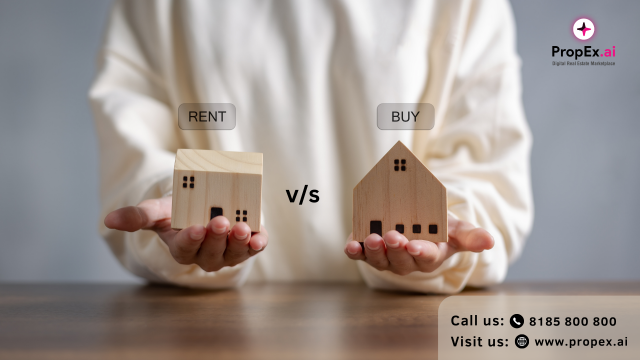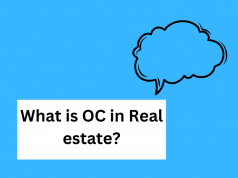The age-old debate between buying and renting a home is a decision that significantly impacts one’s financial future and lifestyle. The choice is multifaceted, involving considerations ranging from financial commitments to personal preferences. In this extensive exploration, we’ll delve into the advantages and disadvantages of Buying vs Renting a Home both options, helping you make a well-informed decision that aligns with your unique circumstances.
Also read: In depth details of construction cost of a building in bangalore
Advantages of Buying a Home
Homeownership carries a myriad of advantages that extend beyond just having a place to call your own. Let’s break down the key benefits:
Equity Building
When you buy a home, you embark on a journey of equity accumulation. Equity represents the difference between your property’s value and the remaining mortgage balance. As you make mortgage payments, you build equity, providing a valuable asset for future financial endeavors.
Stability
Homeownership brings a sense of stability and belonging. By owning a home, you establish roots in a community, fostering a long-term living space that can contribute to a stable and secure lifestyle.
Personalization
Homeowners enjoy the freedom to personalize and modify their living spaces. From interior renovations to landscaping, the ability to tailor your home to your preferences fosters a deeper sense of control and satisfaction.
Potential ROI
Real estate has the potential for appreciation, meaning your property’s value may increase over time. This can result in a significant return on investment when you decide to sell, especially if you’ve made strategic property improvements.
Advantages of Renting a Home
Renting, on the other hand, offers a different set of advantages that cater to those seeking flexibility and lower initial financial commitments:
Flexibility
Renting provides unparalleled flexibility. If your circumstances change, such as a job relocation or life events, you can easily relocate without the complexities of selling a property. This flexibility is particularly appealing to those with dynamic lifestyles.
Lower Upfront Costs
Renting typically involves lower upfront costs. Unlike the substantial down payment required for homeownership, renters can move into a new property with a more modest upfront investment, avoiding expenses such as property taxes and maintenance.
Maintenance
Property maintenance is a responsibility that falls on the landlord’s shoulders when you rent. This saves renters from the financial and time commitments associated with repairs and upkeep, allowing them to focus on enjoying their living space.
Disadvantages of Buying a Home
While the advantages of homeownership are compelling, it’s essential to consider the potential downsides:
Financial Commitment
Purchasing a home demands a substantial financial commitment. From the down payment and closing costs to ongoing mortgage payments, homeownership requires careful financial planning and stability.
Market Fluctuations
The real estate market is known for its fluctuations. Property values may rise or fall, impacting your home’s potential resale value. Economic factors and local market conditions can introduce an element of uncertainty into the equation.
Maintenance Costs
Homeownership comes with the responsibility of maintenance costs. Repairs, renovations, and unforeseen expenses can arise, creating an additional financial burden that renters are often spared.
Disadvantages of Renting a Home
Renting may offer flexibility and cost advantages, but it also comes with its own set of drawbacks:
Limited Control
Renters face limitations on personalization and modifications. The inability to make significant changes to the property may affect the sense of permanence and control over the living space.
No Equity Building
Unlike homeowners, renters don’t build equity in the property. Monthly rental payments contribute solely to the landlord’s income, providing no financial stake or potential for future gains.
Rent Increases
Rent prices are subject to change, and over time, renters may face increasing housing costs. Unlike homeowners who lock in a fixed mortgage rate, renters are vulnerable to market conditions that could lead to higher rental expenses.
Buying vs Renting a Home: Making the Right Move
Making the decision to buy or rent a home is a significant financial choice that shapes your lifestyle and investment strategy. Both options come with their pros and cons, and understanding the differences can help you make an informed decision.
| Aspect | Buying a Home | Renting a Home |
|---|---|---|
| Financial Commitment | Involves a substantial upfront investment and a | Requires a security deposit and monthly rent payments. |
| long-term mortgage commitment. | ||
| Equity Buildup | Builds equity over time as mortgage is paid off. | No equity buildup; payments contribute to the landlord’s |
| Property value may appreciate over time. | investment. | |
| Flexibility | Offers stability and permanence. | Provides flexibility to relocate without selling a property. |
| Maintenance | Homeowner responsible for maintenance costs. | Landlord typically responsible for maintenance expenses. |
| Tax Benefits | Eligible for tax deductions, e.g., mortgage interest. | No tax benefits; rent payments are not tax-deductible. |
Buying a home is an investment in your future, providing long-term stability and potential financial growth. On the other hand, renting offers flexibility and less financial commitment, making it suitable for those with transient lifestyles. Consider your financial goals, lifestyle, and market conditions to determine which option aligns best with your needs. It’s not just about buying a house; it’s about investing in your future and creating a home that suits your unique circumstances.
Conclusion
In the intricate landscape of real estate decisions, choosing between buying and renting is a deeply personal journey. As highlighted in this comprehensive analysis, the advantages and disadvantages of each option are diverse and nuanced. By carefully considering your financial situation, lifestyle, and long-term goals, you can make a decision that aligns with your unique circumstances. Whether you opt for the stability of homeownership or the flexibility of renting, understanding the implications of your choice is paramount for a successful and satisfying living experience.





